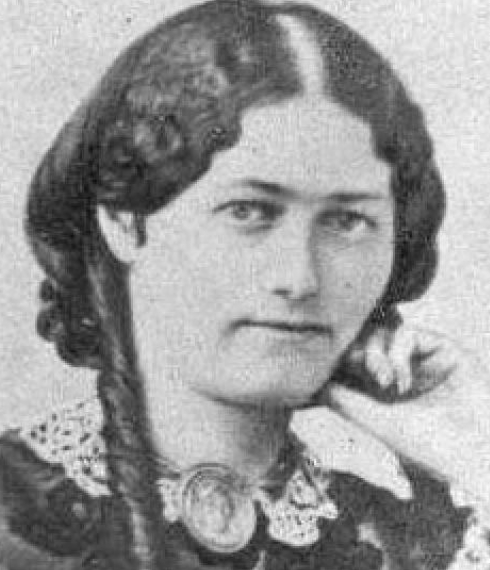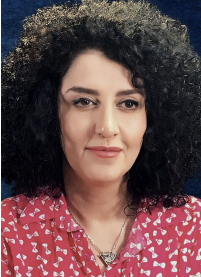April 21
Clémence Royer

On this date in 1830, Clémence-Auguste Royer (née Augustine-Clémence Audouard) was born in Nantes, France. Her parents were Catholic royalists and didn’t marry until seven years after her birth. Her early education was in a convent school. Royer became a republican following the Revolution of 1848 and started to question other commonly held views. She obtained a teaching certificate and taught at girls schools in Wales, where she mastered English, and in France.
She read widely on science in these school libraries. In 1855, as a result of her inquiries, she rejected Catholicism thoroughly and devoted herself to science. She began to offer lectures on science and logic for women in Lausanne, Switzerland, in 1858.
Royer translated Charles Darwin’s Origin of Species into French in 1863. She controversially added a 60-page preface which used Darwin’s mechanism for evolution as part of an anti-religious argument, which Darwin did not make. By this time the book was in its third English edition and contained several strong references to a creator. Royer had been an evolutionist before reading Darwin, having been strongly influenced by the writings of Jean Baptiste LaMarck.
French scientists, especially atheists and anthropologists, were strongly influenced by evolution and natural selection as framed by Royer, who also discussed the implications of evolutionary theory for human beings and society in her introduction. It would be almost 10 years before Darwin himself grappled with these issues in The Descent of Man. Royer continued as Darwin’s official French translator until the third French edition of Origin was published in 1870.
Royer, despite not being a research scientist, remained a popular interpreter of science as well as a philosopher of science. As a woman, she was denied access to many learned societies, as well as university teaching positions. It has been argued by Jennifer Michael Hecht and others that Royer opened doors to women within the freethinking movement. In 1866 she had a son, René, by her lover and life partner, Pascal Duprat, a married man, which sharpened her concern about the major legal obstacles then present to unwed mothers and their children.
She published many books and articles and considered the pinnacle to be Natura rerum, her theory of nature. In 1900 she was named a Chevalier of the Legion of Honor for her contributions as “a woman of letters and a scientific writer.” Royer died in 1902 at age 71. Her son died of liver failure six months later in Indochina. (D. 1902)
“Yes, I believe in revelation, but a permanent revelation of man to himself and by himself, a rational revelation that is nothing but the result of the progress of science and of the contemporary conscience, a revelation that is always only partial and relative and that is effectuated by the acquisition of new truths and even more by the elimination of ancient errors.”
—Royer, preface to Darwin's "L'origine des espèces," cited in Jennifer Michael Hecht's "The End of the Soul" (2003)
Narges Mohammadi

On this date in 1972, Nobel laureate and human rights activist Narges Safie Mohammadi was born to middle-class parents in Zanjan, Iran, a city of about 400,000 that has a history of left-leaning politics. Her father was a cook and farmer. Her mother’s family was political, and after the Islamic revolution in 1979 toppled the monarchy, an activist uncle and two cousins were arrested.
In awarding her its 2023 Peace Prize while she was imprisoned in Tehran, the Nobel committee cited Mohammadi’s “fight against the oppression of women in Iran and her fight to promote human rights and freedom for all.” She is only the 19th woman to win the 122-year-old prize. “I will continue to fight against the relentless discrimination, tyranny, and gender-based oppression by the oppressive religious government until the liberation of women,” she said in a statement. (New York Times, Oct. 6, 2023)
She was first arrested for her political activities as a student at Imam Khomeini University in Qazvin, where she wrote articles supporting women’s rights and majored in applied physics to earn an engineering degree. In 1999 she married anti-theocrat Taghi Rahmani, who later described himself like this: “As a Muslim who supports freedom and democracy, I am opposed to a number of principles and positions of the Islamic Republic. … I belong to a movement that is known in Iran as a nationalist-religious movement. This movement believes that religion should serve civil society.”
Mohammadi worked as a journalist for several reform-minded newspapers and published a book of political essays before joining the Defenders of Human Rights Center in 2003, later becoming its vice president. She also worked as an engineer for the Iran Engineering Inspection Corp. The government forced the company to fire her in 2008.
The authorities violently disbanded the center in 2009 and Mohammadi was arrested. Her twins — a daughter named Kiana and a son Ali — were born Nov. 28, 2006. They saw their parents arrested periodically until flying in 2015 to Paris to join their father in exile, where he has been since 2012. The children have not seen their mother since they left and are no longer allowed to talk to her on the phone.
Mohammadi had vowed to stay in Iran to continue the fight. In her letter to the Prosecutor General of Tehran after the children left when they were 8, she wrote: “In my head, I started to talk to my children. … How many times will they hurt your small yet innocent hearts and watch you cry as you’re separated from your mother or father?” (Amnesty International, Aug. 4, 2015)
In 2016, while already imprisoned, she was sentenced to 16 more years for working with a human rights group to abolish the death penalty. Released in 2020, she was rearrested and sent back to prison in late 2021, where she remains as of this writing in October 2023.
“I started campaigning in Iran 32 years ago, as a student,” Mohammadi said. “My goal back then was to fight religious tyranny, which along with tradition and social customs have led to the deep repression of women in this country. That’s still my goal.” (New York Times, Sept. 16, 2023)
Her honors include the 2018 Andrei Sakharov Prize and $10,000 from the American Physical Society in recognition of her activism “despite persecution that has forced her to suspend her scientific pursuits and endure lengthy incarceration.” She was one of the recipients of the 2023 Olof Palme Prize awarded along with $100,000 for outstanding achievement in the spirit of Olof Palme.
“We the people of Iran are transitioning out of the Islamic Republic’s theocracy. Transition won’t be jumping from one point to the next. It will be a long and hard process but the evidence suggests it will definitely happen.”
—Mohammadi comments to The New York Times (June 2, 2023)
